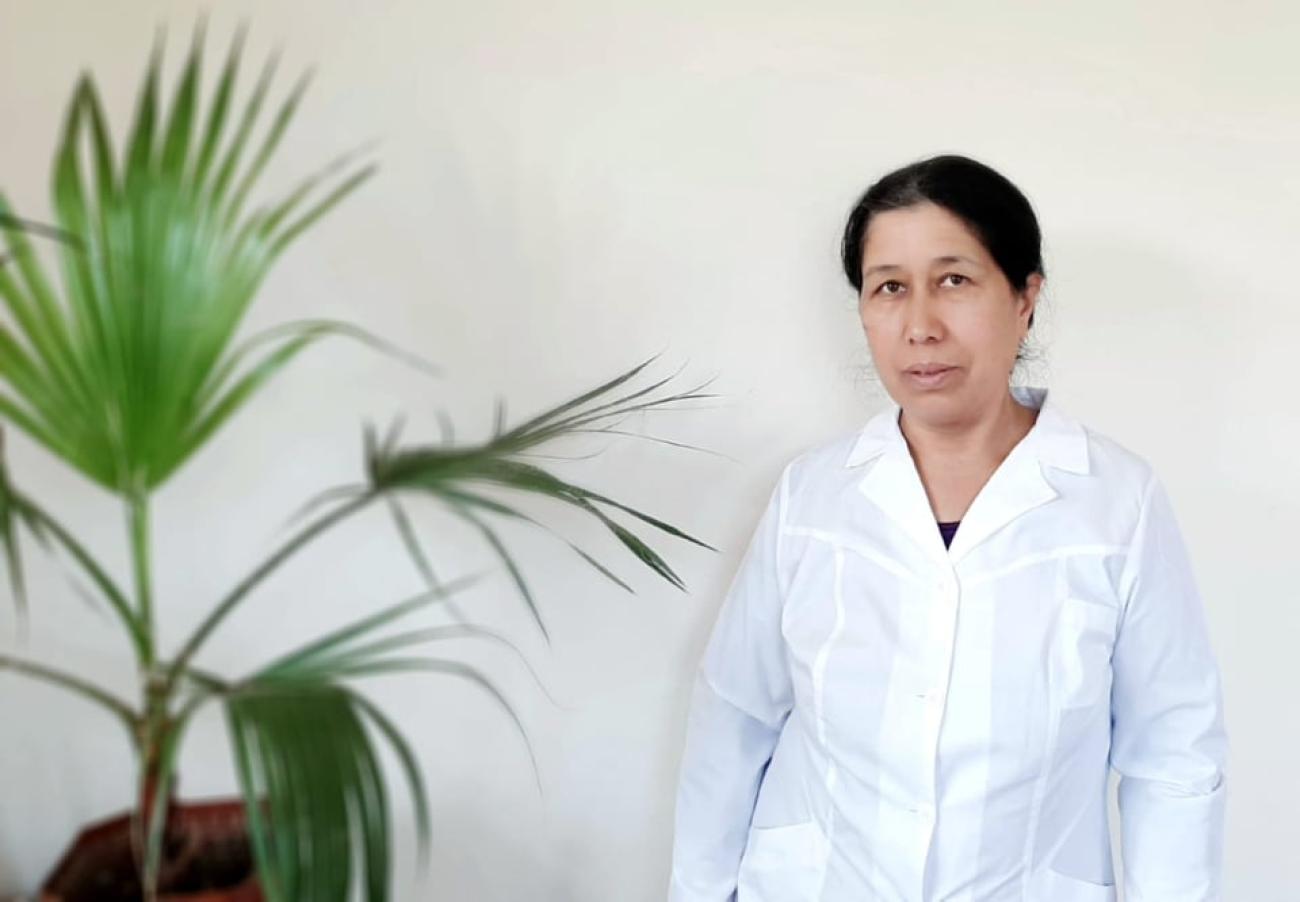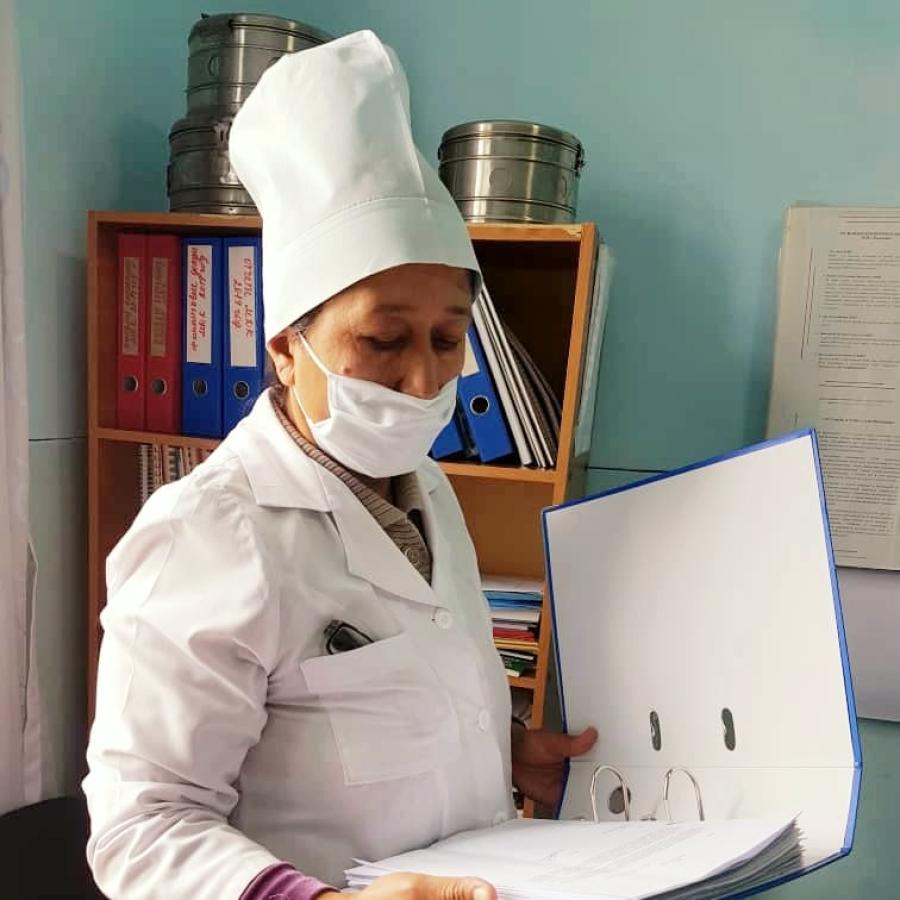There is such a profession – a nurse

We get out of the car, look into the blossoming apple orchard and go to the family medicine center in Kyzyl-Kiya.
As soon as we enter the infectiologist’s office, where the multidisciplinary team is also located, we are met by a woman in a lab coat. She has incredibly kind and sad eyes, which are very endearing, enwrap you with kindness and makes you understand that you are in safe hands. In this room you always feel that you will not be offended or hurt.
The woman who meets us is Malikakhon Kurbanova (Malika). Malika is a nurse at the Kyzyl-Kiya family medicine center and has been working there for almost 20 years. We decided to ask Malikahon what brought her into the profession, how it feels working in the coronavirus pandemic and what does she think about the future.
Malika, can you tell how come that you decided to be a nurse?
When I was a kid I was quite often sick. My mother and me spent a lot of time in hospitals. I was always surprised by and admired women wearing lab coats who knew how to make a painless injection. Since then, I have always known I would become a nurse and help people. When I graduated from school in 1986, I entered our Kyzyl-Kiya medical college and after that in 1989 I went to work in the health unit in the construction materials plant. That is how my story began. In the beginning of 2000ies the reform of primary health care started, family medicine centers were created, I came to work as a nurse to the ORT office and then joined in the infectious diseases unit, where I still work.
You have quite a lot of experience; tell us what is the hardest in your profession?
We always had difficulties and they are likely to continue, that is our job (smiling). Sometimes I feel like leaving it at all, sit at home, take care of my orchard and my house, marry my son and take care of my grandchildren, but then I realize that this is my life. I go on vacation and there are my neighbors and relatives who need an injection, someone needs a drip. My work would not let me go, sometimes it gives me strength in moments of apathy, when I see that my actions and my care for patients bring results and people are recuperating.
Malika, you and your colleagues worked during the very outbreak of the coronavirus in the south. Were you scared?
We did house-to-house visits. We observed the patients with the signs of acute respiratory infections. Of course it was always scary as we are human beings. I was afraid to infect my family, sometimes I cried.
You work as a nurse in a multidisciplinary team (MDT) for people living with HIV. Tell us how do you feel working in this area?
I joined the MDT thanks to my infectiologist. Unfortunately, he has already passed away, but we continue working with the new team and the new doctor. Our patients are used to us and we are used to them. Now we are giving them ARV medicines for three months in order to avoid their exposure to risk. I like teamwork and it is good that we have a social worker in the team.
Do you think your profession has a future?
There is always a future and one must hope for the best. There is no medicine without paramedics. Many people go into the profession to help and treat people. I think that’s our main task.
For information: The Joint United Nations Programme on HIV/AIDS began creating the first multidisciplinary teams in 2013. The project is implemented by the “Araket Plus” Public Foundation. There are 10 pilot teams in Batken, Osh, Jalalabad and Issyk-Kul provinces of the country.
Since the spread of the coronavirus pandemic in the country, the UNAIDS office made the decision to resume technical surcharges to medical workers working in the MDTs for the next 3 months since April to June 2020. The total salary fund for this period will make KGS 788,000. The surcharges are financed by the Russian Technical Assistance Program for countries of Eastern Europe and Central Asia in combating HIV/AIDS and other infectious diseases.



